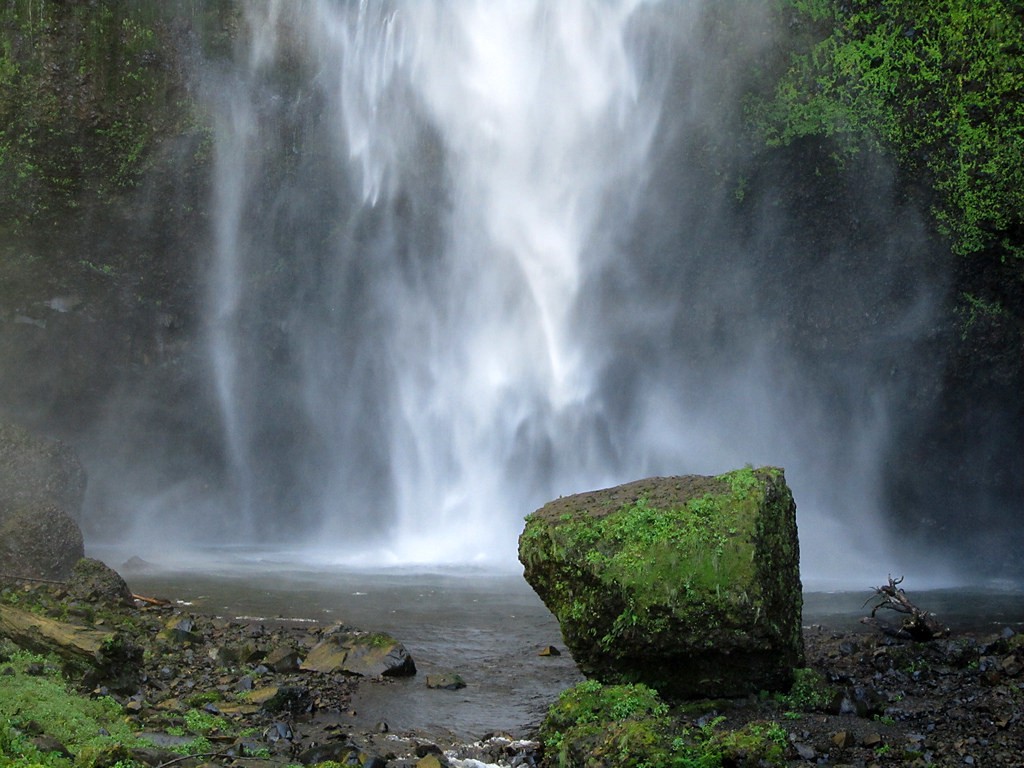On Oregon Trails and Crowded Rafts
Marian Call offers career advice on Marketplace.

My friend Marian Call, whom you might know either from her music—her newest album, Standing Stones, released in February—or from the #FirstSevenJobs hashtag we all shared last summer, was just on Marketplace’s podcast “Make Me Smart With Kai and Molly:”
8: The singer and the supercomputer
The whole podcast is worth listening to, and although Kai Ryssdal and Molly Wood begin the discussion by asking Call about #FirstSevenJobs and her experience working with the Watson supercomputer team at IBM to learn which first jobs were most common (lawncare and childcare, as it turns out), the most interesting part of the conversation isn’t about our early jobs. It’s about our current ones.
CALL: I realized that if we all rush the same solutions, as indie artists or indie creators—or even in technology and business it’s also true—if we all flood the same raft, it sinks. The strength we have right now, as far as continuing to be creative or independent workers, has to do with diversifying our strategies.
If you’re reading this and thinking “well, I’m not a creative artist or a freelancer,” be aware that this still may apply to you; the podcast almost immediately moves to the breakdown of the traditional employer/employee relationship and the fact that we don’t really know what’s coming next.
But it’s interesting to think about the idea of diversification and of seeking stability on uncrowded rafts, as it were, in comparison with my favorite track off Standing Stones, “Oregon Trail.”
The song is about the Oregon Trail generation (you know, those of us who are a little older than the Millennials but who still call ourselves Millennials sometimes because we don’t fit into Gen X). It’s also about finding ourselves on the same raft as everyone else—or, to use the correct metaphor, fording the same river.
We were not phenomenal, no, we were not phenomenal
We never were phenomenal,
Just part of our whole generation’s vague instinctive mass migration.
We were not exceptional, no we were not exceptional…
If we are “not exceptional,” as Call sings, and yet we also need to find our own exceptional, uncrowded, diversified career path in order to make it in the current economy, what are we supposed to do?
I think about this conflict constantly. Pretty much since the end of college, when I walked into my mentor’s office and said, essentially, that all of the people we studied in our art/theater/music classes, all of the models we were given, were “famous,” which is to say outliers. I imagine it’s similar in other disciplines; business in particular. Then I asked: “But most of us won’t be famous, so how do we figure out how to live? Where are the biographies of ordinary people?” (Yes, The Biographies of Ordinary People is the title of my forthcoming novel—and yes, that’s what it’s about.)
Maybe the solution, for the ordinary non-exceptional person, is to be ready to both diversify and pivot; build new skills, transition into new careers, be the buffalo who avoids the static, pixellated hunter (who could never carry all of us anyway).
But we all know what happened to the buffalo.
There’s one more lyric in “Oregon Trail” that gets me, every time:
And we have not found shelter yet,
No, we have not found shelter yet —
We’ve eaten what we meant to plant —
And the twelve ages of man are circling hungry overhead.
There are a lot of interpretations here, but since I think about money every day I know exactly what “we’ve eaten what we meant to plant” means to me. We try to save, or invest in our future, and something happens.
So what do we do? The rafts are crowded, and any obvious path is filled with other wagons.
There is a possible answer in Standing Stones, and I don’t want to give it away. If you’re all “I’m not listening to an entire album just to find some hint you’re dropping,” I will note that Marian Call also alludes to it on the Marketplace podcast:
CALL: Those friendships are real. The couches that they offer me to sleep on are real. The couches I’ve offered them to sleep on, when they finally come visit me in Alaska, are real.
She’s referring specifically to friendships made online, but more generally to the idea that we can support each other and share resources. We still need to have the resources, or at least some of us do, and to get those resources we might need to look for those uncrowded rafts. But there’s a reason we’ve built communities, from the very beginning—and even if everything else in the world is changing, that need for community is still important and may, in the end, keep us afloat.
Support The Billfold
The Billfold continues to exist thanks to support from our readers. Help us continue to do our work by making a monthly pledge on Patreon or a one-time-only contribution through PayPal.
Comments